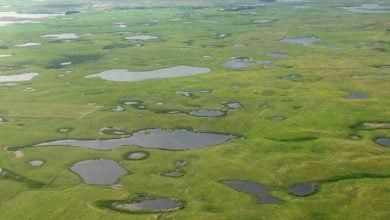In 2005, the racism and priorities of capitalism were revealed in the wake of Hurricane Katrina. The government provided no coordination or assistance in helping people evacuate New Orleans, a city that is nearly 70 percent African American. When the hurricane hit, it breached the insufficient levees in 53 places, flooding 80 percent of the city. As a result, tens of thousands were trapped, many in their flooded homes for days before the government responded with food, water, medical aid and temporary shelter.
In New Orleans, 1,400 people died. In the years that followed, the government did little to provide jobs or to help workers rebuild the city. The few federal tax breaks and state and federal subsidies often went toward constructing luxury condominiums and rebuilding casinos. Many displaced people have still not been able to move back to New Orleans.
Katrina was also a man-made disaster
Some might see Hurricane Katrina’s social disaster as an extraordinary event. The truth is the same social and economic conditions that made that nightmare possible in 2005 still persist all over the world and can be seen in New Orleans still, as evidenced seven years later in the aftermath of the recent Hurricane Isaac.
Even though the levees built after Katrina helped to protect the city during Isaac in late August, much of the surrounding area and its thousands of inhabitants still had no help. Rural fishing and farming communities and subdivisions outside the city were inundated as the storm overcame their flood walls, even though Isaac was only a category 1 storm.
On the coast of Louisiana, a million people live outside the protection of the levee system that surrounds greater New Orleans. Since 2005, the Army Corps of Engineers has decided not to extend coverage to these areas, largely because they chose to spend their $14 billion elsewhere.
These 1 million people living on the coast of Louisiana are right to feel abandoned. On one side of the levees, life returned to normal in the days following Isaac, while on the other side there remained massive hardship and disarray. Flooding lingered in low-lying areas and 100,000 people went without power for up to a week.
Just as the Corps cited lack of economic feasibility, so too the State of Louisiana retreated from plans to provide complete coverage for these areas based on profit and loss calculations. Instead, it is looking at building around cities and towns “ring levees”, which are smaller and less effective than the levee system protecting greater New Orleans. As one oceanographic consultant put it, “the population density and property [value] has got to factor in there somewhere.”
Understandably, many people are moving away from the coast to get behind the levee systems. The capitalist government is unlikely to lend them a helping hand.
A moment’s reflection highlights the absurdity of the government’s unwillingness to help. There is not enough money to protect people’s lives and homes from the forces of nature in the richest country on Earth? What priorities could possibly come before that?
Under capitalism, the answer is clear: tax cuts for the rich, bailouts for the banks, and trillions in spending for imperialist wars come before the health and safety of poor and working people. Naturally, the capitalists obscure these facts with a false narrative about an “unpredictable” recession and the corresponding need for deficit reduction and austerity. They do not mention the backdrop of an economic system bent on war, needless waste, and profits for the powerful.
Natural disasters linked to unchecked capitalist development
Capitalist development has fueled human-caused climate change leading to more intense hurricanes and other natural disasters. This makes it all the more egregious that the capitalist state in the United States has such a weak response system to these natural disasters
Because of the system’s blind thirst for profits, very little, if anything, has been done to reduce the greenhouse gas emissions responsible for global warming. Powerful banks and the fossil fuel industry shape governmental and research priorities, thus slowing the development of alternative energy research.
Meanwhile, natural disasters continue to grow more frequent and severe. For instance, the tornado that hit Joplin, Mo,. in 2011, destroying 30 percent of the town and killing 117 people, was the deadliest tornado recorded since 1950. Summers are also trending hotter and hotter, with the summer of 2012 in the running for the hottest summer of the last 60 years.
Meanwhile, the capitalist system’s unplanned nature stymies collective action for mitigating and adapting to global warming. Planning for and responding to events like hurricanes, tornados and tsunamis under capitalism also remains half-hearted and ineffective. This is because the burden falls on individuals to fend for themselves.
Compare this to hurricane response in socialist Cuba. In that small island nation, hurricanes are a regular fact of life due to its geographic location. Comprehensive evacuation plans are in place to make sure that everyone, even pets and domestic animals, are able to get to safety.
Further, as a result of socialist planning, Cuba has dramatically reduced its national carbon footprint while maintaining a high level of human development as measured by the health and education levels of the population.






